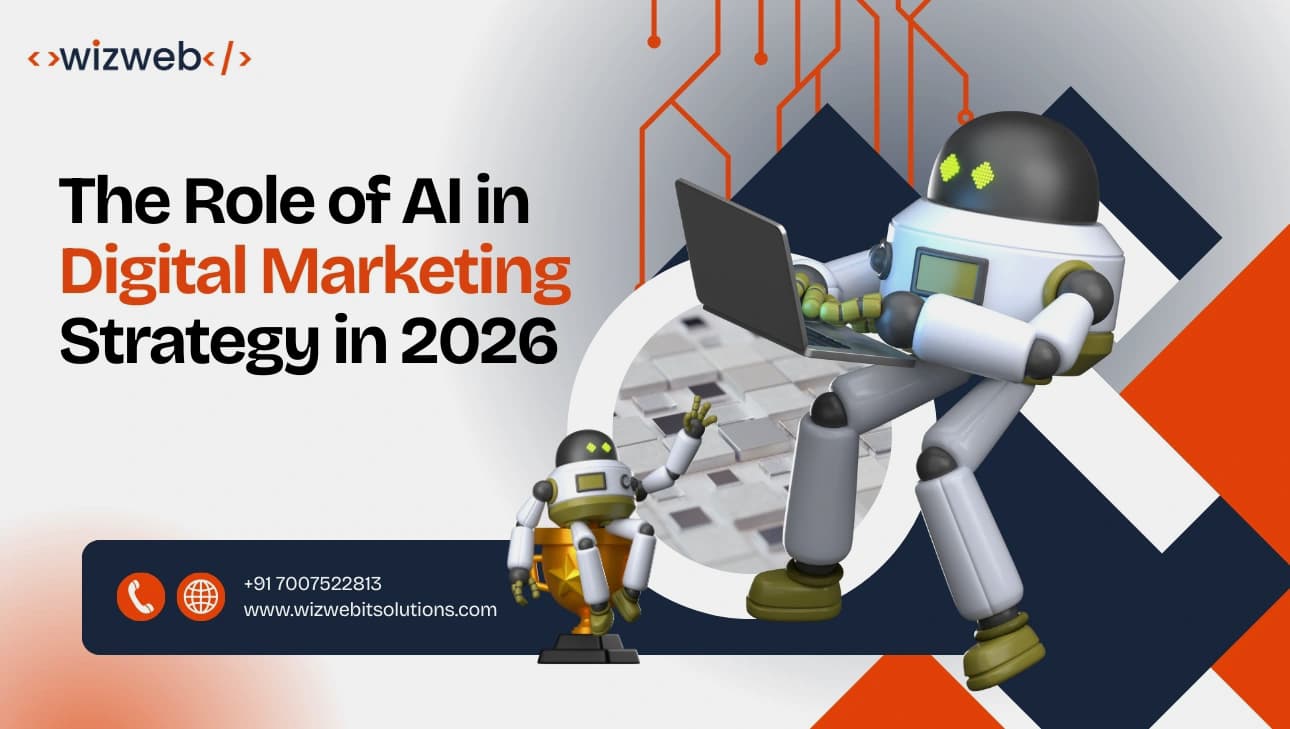Get in Touch
- Phone
+91 700 752 2813
- Email Now
hello@wizweb.in
Office No - 204 A-140, Sector 63 Road Noida, Uttar Pradesh 201301

Every few years marketing changes the way we reach customers. Right now — and especially in 2026 — one of the biggest forces reshaping the field is artificial intelligence. If you want to understand the Role of AI in Digital Marketing, this article will explain it in simple, human terms. By the end, you should know what AI can do, how businesses use it, what risks to watch for, and how to start using it in your own plan.
The Role of AI in Digital Marketing is how smart software and computers help marketers make better choices, create content, and deliver messages to the right people at the right time. AI is not one thing — it includes machine learning (finding patterns in data), Generative AI (making text, images, and short videos), and automation systems that handle routine work. When these tools are used together, they change how campaigns are planned, launched, and measured.
The Role of AI in Digital Marketing matters because it improves three big areas: personalization, speed, and scale. Personalization means messages feel made for each person. Speed means teams can test ideas and update campaigns fast. Scale means running many ad versions or emails without hiring many more people. In short, AI helps teams work smarter and reach people more effectively.
When we talk about the Role of AI in Digital Marketing, we can look at specific uses that matter day to day:
Each of these examples shows a different part of the overall Role of AI in Digital Marketing.
If you hire a company for Digital Marketing Services, you should expect them to use AI in helpful ways. Agencies use AI to speed up content creation, run smarter ad tests, and report faster on results. This does not mean people are replaced. Instead, teams move away from repetitive work and spend more time on strategy, creative direction, and building relationships. When you choose a provider for Digital Marketing Services, ask how they use AI, what checks they run, and how they measure results.
The Role of AI in Digital Marketing grows as you learn to use it right. Here’s a simple plan you can follow:
Following these steps will help you use the Role of AI in Digital Marketing safely and effectively.
AI brings great benefits, but it has risks too. As you rely on the Role of AI in Digital Marketing, watch these issues:
When you use Digital Marketing Services, make sure your partner shows how they handle these risks.
To prove AI is helping, measure real business results. Look at conversion rate, cost per acquisition, time saved on tasks, and customer feedback. Good AI use will show up in better numbers and happier customers.
By the end of 2026, the Role of AI in Digital Marketing will be even stronger. Expect smarter AI helpers that manage parts of campaigns, better tools that create text and video together, and tighter links between marketing and online sales. Companies that use AI while keeping human creativity at the center will get the best results.
The Role of AI in Digital Marketing in 2026 is not about replacing people. It is about helping people do better work. AI can speed up tasks, find valuable patterns, and make messages more personal. If you use Digital Marketing Services, ask how AI fits into their process, how they protect data, and how they measure success. Start small, keep human oversight, and measure outcomes. Do these things, and AI will become a helpful part of your marketing playbook.